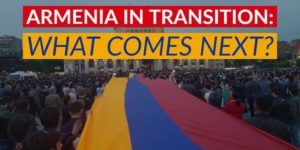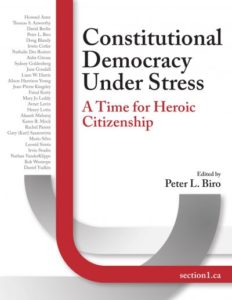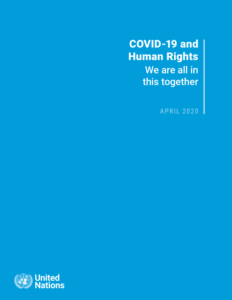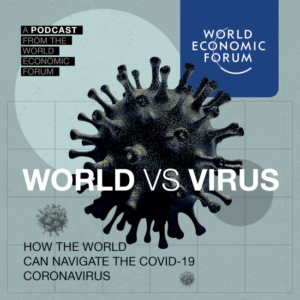 COVID-19 signals a global paradigm shift because even before the pandemic, the world was already in the grips of a far-reaching transformation, analyst Ullrich Fichtner writes for Der Spiegel. The best evidence for that transformation is the book, published in October of last year, two months before the appearance of the novel coronavirus, called “The End of Illusions.” The German sociologist Andreas Reckwitz, describes how societal upheavals take place, how collective thought shifts and how useful, decades-old paradigms suddenly disintegrate and are replaced by a new one.
COVID-19 signals a global paradigm shift because even before the pandemic, the world was already in the grips of a far-reaching transformation, analyst Ullrich Fichtner writes for Der Spiegel. The best evidence for that transformation is the book, published in October of last year, two months before the appearance of the novel coronavirus, called “The End of Illusions.” The German sociologist Andreas Reckwitz, describes how societal upheavals take place, how collective thought shifts and how useful, decades-old paradigms suddenly disintegrate and are replaced by a new one.
During the past month, Armenia adopted regulations contradicting the political leaders’ commitment to creating an open and liberal society, says Valentina Gevorgyan, Policy Research Fellowship Coordinator at the Open Society Foundations Armenia. Amidst the emerging crisis of the pandemic, the parliament has speedily adopted amendments to the law on NGOs to increase state control over organisational activities. The regulation points to an intention to enter the space of civil society by making the reporting of the content of organisational activities mandatory, she writes for New Eastern Europe:
 A brief analysis of states’ responses to COVID-19 puts Armenia in a similar situation to Hungary, Russia and China. This is disappointing, considering Armenia was named as the best country of the year only two years ago, according to The Economist…Armenia’s post-revolutionary leadership usually responds to criticism by asserting its legitimacy. This is true. The government becomes legitimate once it is elected in office and the citizens delegate responsibility to it. But in the case it does not behave, the non-delivery may not be explained by using the legitimacy argument.
A brief analysis of states’ responses to COVID-19 puts Armenia in a similar situation to Hungary, Russia and China. This is disappointing, considering Armenia was named as the best country of the year only two years ago, according to The Economist…Armenia’s post-revolutionary leadership usually responds to criticism by asserting its legitimacy. This is true. The government becomes legitimate once it is elected in office and the citizens delegate responsibility to it. But in the case it does not behave, the non-delivery may not be explained by using the legitimacy argument.
 In a pandemic, when societal arrangements are summarily reordered without fuss or controversy, it is essential to ensure that the provisional concessions to the emergency do not surreptitiously define a new normal, argues Peter L. Biro, the Founder of section1.ca and editor of the forthcoming book, Constitutional Democracy Under Stress: A Time For Heroic Citizenship (Mosaic Press).
In a pandemic, when societal arrangements are summarily reordered without fuss or controversy, it is essential to ensure that the provisional concessions to the emergency do not surreptitiously define a new normal, argues Peter L. Biro, the Founder of section1.ca and editor of the forthcoming book, Constitutional Democracy Under Stress: A Time For Heroic Citizenship (Mosaic Press).
What makes the use of emergency powers extraordinary is not the nature of the crisis under the auspices of which they are invoked, he writes for the RSA. It is that they call on free and democratic citizens to provisionally depart from the norms and to voluntarily forfeit the rights and privileges that found, protect, express and define their very freedom and democracy. That and the fact that they would all be quite unremarkable in dictatorships, autocracies and even in illiberal democracies.
 Such unprecedented acts establish the norms that will be very hard to undo long after the coronavirus is eradicated, adds Yoni Ish-Hurwitz, a former UN Human Rights Officer. The UN has recognized this looming problem and urges action. Secretary-General António Guterres launched a report (right) last week to put human rights at the forefront of coronavirus response and recovery, he writes for the World Economic Forum.
Such unprecedented acts establish the norms that will be very hard to undo long after the coronavirus is eradicated, adds Yoni Ish-Hurwitz, a former UN Human Rights Officer. The UN has recognized this looming problem and urges action. Secretary-General António Guterres launched a report (right) last week to put human rights at the forefront of coronavirus response and recovery, he writes for the World Economic Forum.
@CEPA analyst @edwardlucas warns of the angers of Chinese authoritarianism – to us all.
“The regime in Beijing does not just seek to control its own vast country, it wants to control the way other countries behave, too,” he writes for the (London) Times.
Despite its initial delays and prevarications regarding the coronavirus outbreak in China, Beijing is now touting its progress in slowing the pandemic and providing needed equipment and supplies to other parts of the world, VOA reports. David Shullman, Senior Advisor to the International Republican Institute (IRI) – a core partner of the National Endowment for Democracy (NED) – and Liselotte Odgaard, Senior fellow at the Hudson Institute, discuss the many ways by which China is exploiting the pandemic to export its authoritarian model around the world and undermine democracy.
 As China’s funding for infrastructure and other investments expands along its Belt and Road Initiative, its economic and political influence is growing in the Western Balkans, where Beijing is pursuing a “hub and spoke strategy,” @CSISEurope notes in a new @CSIS report exploring the strategic implications of China’s investments.
As China’s funding for infrastructure and other investments expands along its Belt and Road Initiative, its economic and political influence is growing in the Western Balkans, where Beijing is pursuing a “hub and spoke strategy,” @CSISEurope notes in a new @CSIS report exploring the strategic implications of China’s investments.
Governance and democratic standards in the Western Balkans have lagged behind most
European counterparts and have been in decline over the past decade, the report observes:
All seven countries are considered semi-consolidated democracies (Croatia, Montenegro, and Serbia) or transitional governments/hybrid regimes (Bosnia and Herzegovina, Kosovo, Albania, and North Macedonia) in Freedom House’s Nations in Transit assessment. Serbia, which has received the highest levels of announced Chinese funding and investment since 2012, totaling over $9.5 billion, is on the verge of becoming a “hybrid regime” due to democratic backsliding.
 China remains unquestionably the most important external partner for Central Asia’s embattled autocratic regimes, notes Carnegie analyst Alexander Gabuev @ALEXGABUEV:
China remains unquestionably the most important external partner for Central Asia’s embattled autocratic regimes, notes Carnegie analyst Alexander Gabuev @ALEXGABUEV:
- Firstly, the possibility that China will mount an economic recovery more quickly than Europe or the United States is perhaps the only bright spot for commodity exporters in Russia and Central Asia. …
- Secondly, there is huge appetite among insecure leaders across Eurasia to emulate China’s model of societal control and surveillance. ….RTWT
Once again #China uses its economic clout to force other nations to kowtow to #Beijing. @demosisto tweeted. After covering up the early #coronavirus outbreak, #CCP hasn’t learnt a lesson. It becomes more dubious when #China stops any inquiry while insisting that #COVID19 is not from #Wuhan.







